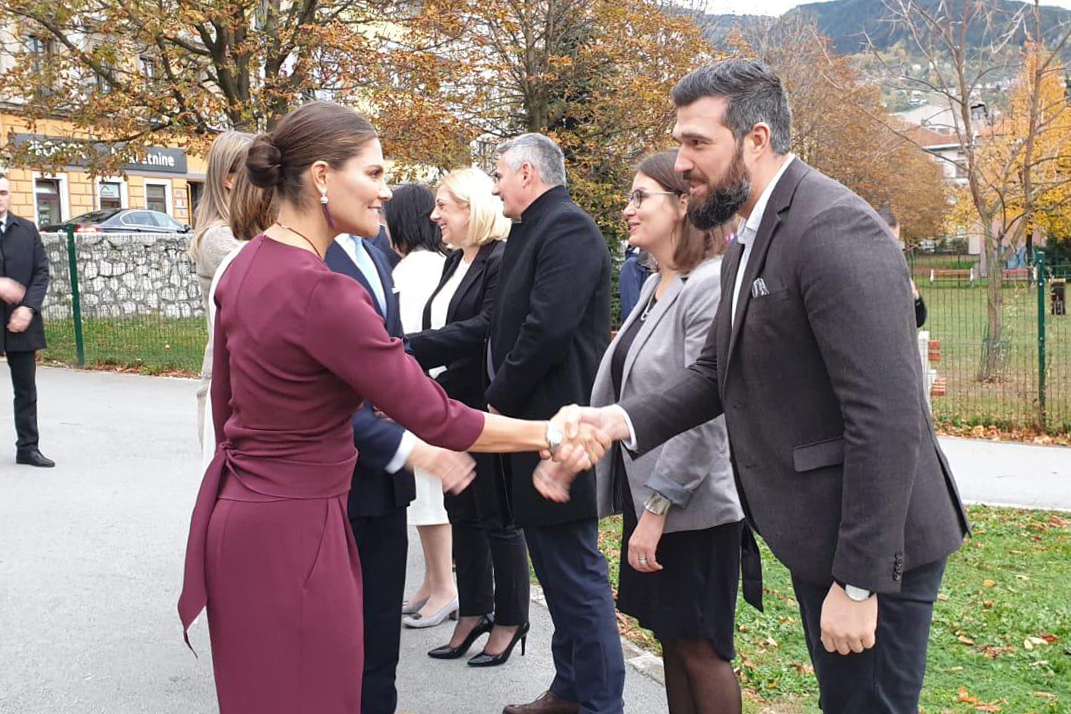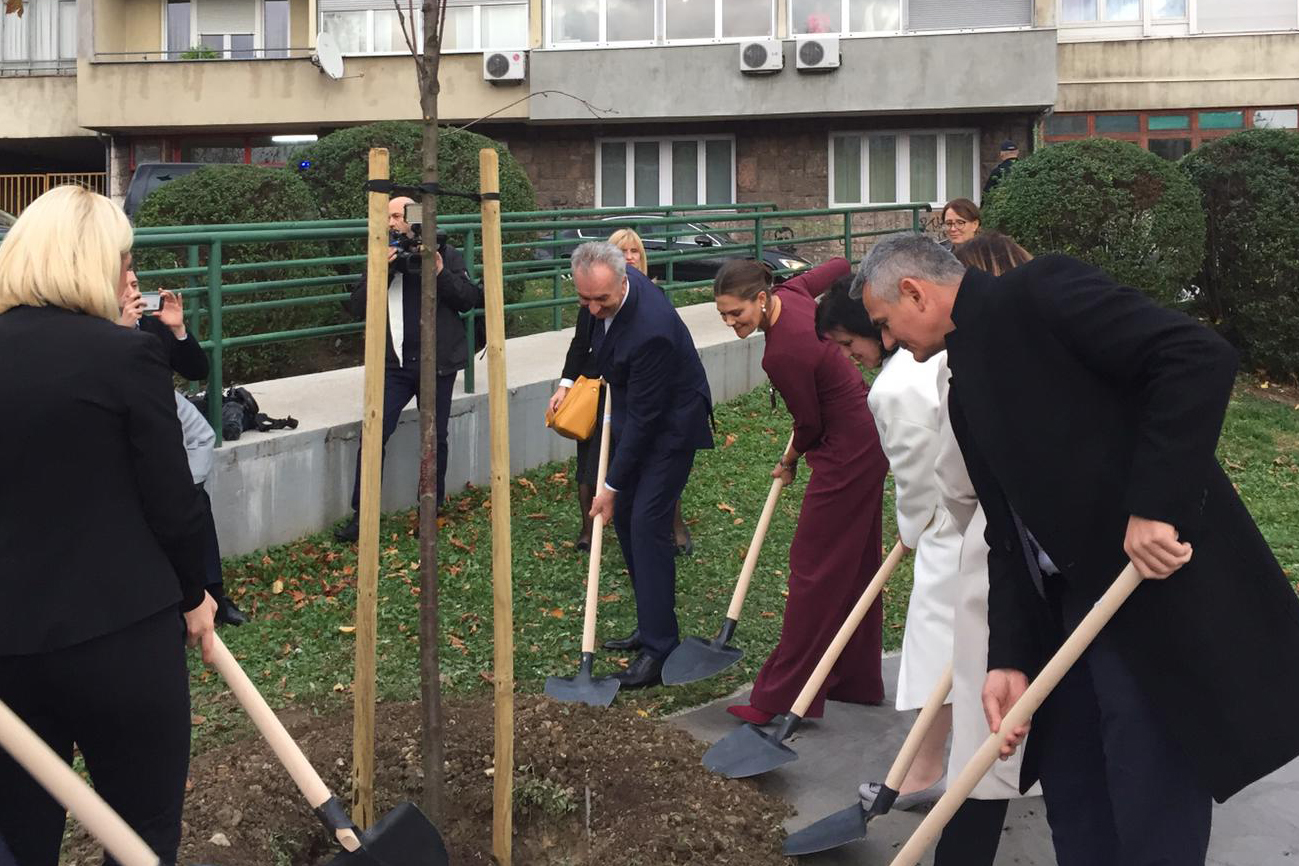Bosnia and Herzegovina (BiH) is preparing an environmental strategy and action plan for 2030 and beyond, with support from Stockholm Environment Institute, the Swedish Embassy in BiH and the Swedish International Development Cooperation Agency, Sida. The project was launched on Wednesday with a tree-planting event in Sarajevo attended by HRH Crown Princess Victoria of Sweden, Swedish Environment Minister Isabella Lövin, and high-level officials from BiH.

The new BiH Environmental Strategy and Action Plan 2030+ (ESAP 2030+) aims to:
- strengthen current environmental governance in BiH
- further align BiH’s legal and institutional framework with the European Union’s environmental acquis – essential for future EU membership
- provide a roadmap for future environmental-sector measures and investments, and mechanisms for their implementation beyond 2030.
During the two-and-a-half-year project, SEI will work with authorities at BiH level, along with those of the two entities that comprise BiH: Federation of Bosnia and Herzegovina and Republika Srpska, and Brčko District. BiH ESAP 2030+ will be developed collaboratively and is scheduled to be launched in 2022.
“SEI is very honoured and excited to be supporting Bosnia and Herzegovina’s environmental policy development. This is the core of SEI’s work, to support policy-making informed by science, leading to sustainable outcomes. We hope that the environmental strategy and the action plan will help prioritize activities and measures that will safeguard the environment in BiH. This will ultimately improve the well-being of the people of BiH.”
— SEI Executive Director Måns Nilsson

In addition to providing support in developing BiH ESAP 2030+, SEI’s role will include assessing the current state of the environment in BiH; supporting the definition of environmental policy in BiH; building the capacity of organizations, institutions, networks and other relevant actors to design, implement and monitor environmental policy measures; and identifying the financial resources and human capacity needed to implement BiH ESAP 2030+.
The environmental strategy and action plan will help BiH to meet commitments under its 2008 Stabilization and Association Agreement with the EU. It will also seek to improve BiH’s implementation of other international environmental and sustainability commitments, including the 2030 Agenda and the 17 Sustainable Development Goals. BiH applied for EU membership in 2016.
According to a UN Environmental Performance Review of BiH, while progress has been made over the last decade in addressing environmental issues, major environmental challenges facing BiH include air pollution; problems with managing waste and wastewater treatment, deforestation, concerns about the impact of hydropower on water resources and biodiversity; and a need for more protected areas – all issues BiH ESAP 2030+ will likely seek to address.
The work is financially supported by the Swedish Embassy to BiH and the Swedish International Development Cooperation Agency (Sida).
The new project was launched on Wednesday (6 November) with a tree-planting event in Sarajevo’s Koševo Park. In attendance were Mirko Šarović, Minister for Foreign Trade and Economic Relations of BiH; Edita Djapo, Minister of Environment and Tourism of the Federation of Bosnia and Herzegovina; Srebrenka Golić, Minister for Spatial Planning, Construction and Ecology of Republika Srpska; Siniša Milić, Mayor of the District of Brčko; the Swedish Embassy in BiH (including the ambassador Johanna Strömquist); Isabella Lövin, Minister for Environment and Climate of Sweden; HRH Crown Princess Victoria of Sweden; Prince Daniel of Sweden; and SEI team members Bernardas Padegimas, project manager and Biljana Macura, scientific adviser.






